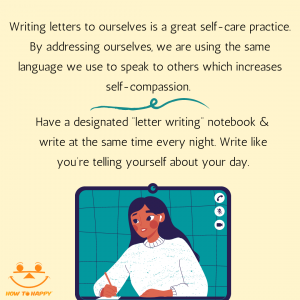Today’s representation of self-care makes us equate it with luxurious spa trips or beach vacations. But self-care can be simple. It doesn’t have to be something we wouldn’t normally do, neither does it require a major budget. In fact, the best self-care practices are easy to maintain. We also don’t need to start completely new habits if those are difficult for us to be consistent with. And if we do, we should be realistic with ourselves and think about what we can incorporate into our everyday routines.
If you’re looking for some ideas, here are three realistic self-care ideas that won’t break the bank or make you feel stressed about maintaining.
Morning Meditation
You can meditate anytime throughout the day, but I find that morning meditation can be the easiest to be consistent with and one of the most effective. When you start your morning slowly and before rushing to your busy schedule, you are setting the tone for a calm and relaxed day. How you start your morning dictates how you feel throughout the rest of it.
First, get into a comfortable position. The floor is best if you want to feel grounded but get into whatever position you are capable of or comfortable with. Close your eyes and focus on your breathing for a few minutes. Then, start repeating whatever affirmations you have for the day. For example, if you want it to be a good day at work, repeat affirmations like “It will be a productive day full of positive energy.” You can even create a list, but I find that customizing affirmations for the day is best. You can do this for as little as ten minutes every morning. The important thing is to be consistent enough to reap its benefits.
Create a small space or corner for your morning meditation even if it’s just a little pillow in the center of the room. Having a designated space for it will increase your chances of being consistent.
Write Letters To Yourself
Journaling is a great way to express ourselves, but many people often find it difficult to keep up with as they struggle to know what to write about or what they’re feeling. Writing letters to ourselves is a great alternative.
What makes it so great is that when we address ourselves, we are using the same language we use to speak to others. This allows us to have more compassion towards ourselves. For example, if you were to journal “You didn’t well do in today’s interview” instead of “I didn’t do well in today’s interview” you will quickly realize how harsh the first one sounds and start to learn to change that language. You will find yourself using more compassionate language like ” You did your best in today’s interview”. This may not come naturally at first, but as you reread your letters to yourself, you will adjust to using more positive language.
This is an easy self-care practice to start. Get yourself a notebook and pick a time at the end of your day to write. Start all your letters with “Dear” and address yourself. Write like you’re telling yourself about your day and its events. The next day, or even at the end of the week, reread your letters and see how you feel about certain things. Always include positive language like ” I forgive you” in your letters. It’s sort of like affirmations, but instead, you have a clear idea of what you want to forgive yourself for.
This may sound like a strange self-care practice, but what better way to take care of yourself than to treat yourself like a friend?
Limit Technology
I’m sure you’ve heard this tip countless time, but it really is an important one. We don’t realize technology’s negative impact on us until we limit our usage time.
For many of us, we believe technology, especially our phones, to be our safe spaces or what keeps us “sane”. And although it could be true to some extent, hiding behind a screen and not solving our problems isn’t the best route to take. In addition, constantly checking our phones and mindlessly scrolling can cause unwanted anxiety and restlessness.
Create a “technology schedule” for yourself and hang it up somewhere visible. Include the times you will spend on technology for important things, plus the time you will spend scrolling and doing what you like. Try to have all your technology hours scheduled during the day. Unless necessary for mediation and relaxation purposes, don’t use your phone directly before bed.
I know how comforting it can be to mindlessly scroll especially before bed, but, the longer you stick to your schedule, the easier it gets. And once you notice how much better you feel and how much time you have to do other things, this will become your favorite self-care practice.
Self-Care Should Be Easy
I know a weekly trip to the spa sounds like an amazing self-care practice, but for many of us, it isn’t attainable. Self-care can already feel so difficult especially when dealing with guilt and self-hatred. The last thing you want to do is create more obstacles. Keep all your practices simple and easy to do without much energy.
The major thing you want to learn from self-care is self-compassion. By engaging in self-care, you aren’t only benefiting from the actual practices, but also from the mindset you build to carry out those practices. The act of choosing to take care of ourselves can feel like a rebellious act for many and a major leap towards self-love and recovery.
Exercise:
1- Where and when can you meditate in the morning? Create a space for yourself and pick the same time every day.
2- Create a “technology schedule.” How many hours will you dedicate to “unimportant” tasks? When will you stop using technology for the day?
3- Have a designated “letter writing” notebook. Write every night at the same time.

